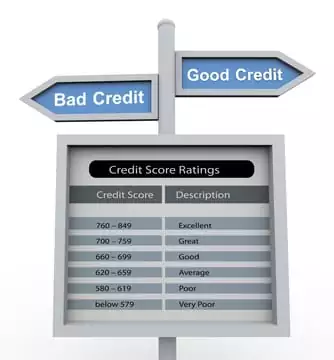 Did you know that your personal credit standing plays a big role in various aspects of your finances?
Did you know that your personal credit standing plays a big role in various aspects of your finances?
Let’s take a closer look at how much can bad credit cost you and how you can avoid the extra costs.
Why Credit Score Matters
Many consumers know that lenders want customers with good credit. If you have bad credit, you might be considered as a “high risk borrower”. In fact, the lower your credit score is, the higher the interest rate you are most likely to pay.
For example, two borrowers need a loan. One has a FICO score of 750 which is considered to be excellent by most lenders while the other has a FICO score of 620 which is considered to be a poor score. Which one of them gets the better rate?
Of course, the one with the higher credit score will get a lower interest. Some lenders offer as low as 7% interest for borrowers with good credit. Meanwhile, borrowers with bad credit might be offered a rate of around 14% or even higher, depending on the credit score.
The same holds true when applying for a credit card, auto loans, home equity loans and mortgages. For instance, if you are going to apply for a home equity loan with a 10-year repayment period, you might be paying at least $20,000 more on interest rate fees alone in the span of 10 years. On the contrary, you can save $20,000 or more if you have good credit.
Avoid the Extra Fees – Raise Your Credit
Indeed, having a better credit score will give you a big advantage when it comes to financing. Since each of us will need to obtain financing at one point in life, it’s important to take care of your personal credit.
Do you plan to apply for a loan or a credit card any time soon? If yes, why not check your credit report first to make sure where you stand. If needed, try to raise your credit score first before submitting your credit application.
To keep your personal credit in good shape, pay all your creditors on time and stay within your allotted credit limit. To avoid bad debt, watch out your spending and find ways to cut back on costs and save your budget.
